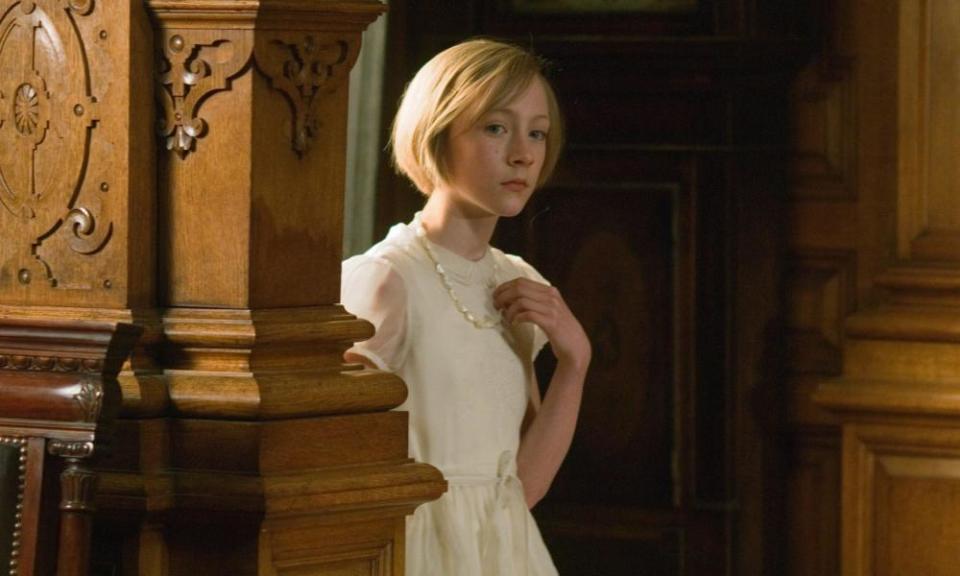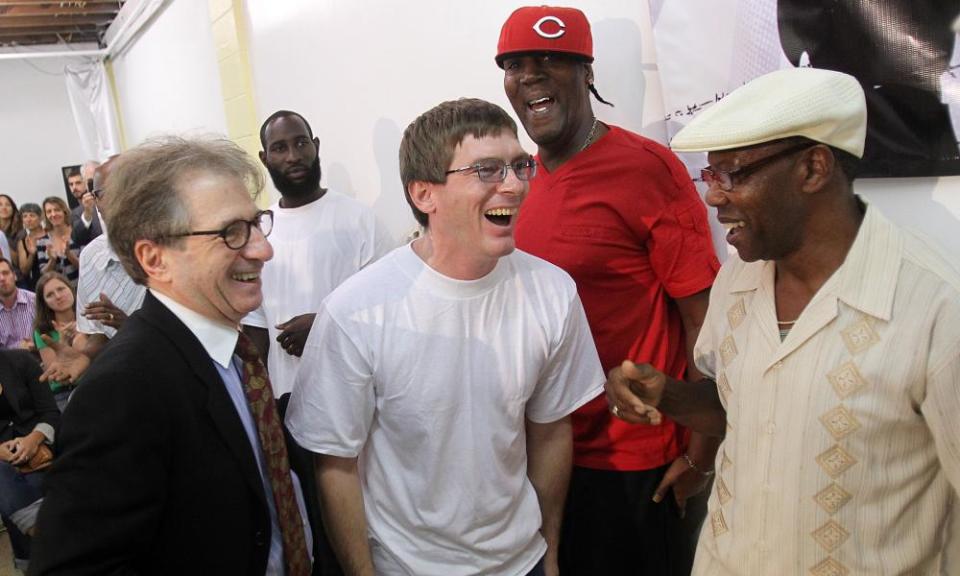Top 10 books about miscarriages of justice

One of the foundations of the US criminal justice system is the maxim that it is better for 10 guilty men to go free than for one innocent to suffer. As with many of the ideals upon which the country was founded, Americans have generally fallen short in living up to it.
According to a recent study by the editor of the National Registry of Exonerations, 4% of people sentenced to death in the US – that’s one in 25 – are later shown to be innocent. For a nation with approximately 2 million people currently incarcerated, that is a startling statistic. Could there really be 90,000 people serving time for crimes they didn’t commit?
I started writing my most recent novel, Conviction, about a black teenager convicted in 1992 of murdering his foster family, after reading what seemed like an article every week about men in my city, New York, being exonerated after decades in prison. How did they survive the rage? What happened to the people they left behind? And what havoc did the real perpetrators inflict on society afterwards?
The body of literature about miscarriages of justice is enormous, so for this list I’ve chosen a mix of fiction and nonfiction that has impacted me personally, both as a novelist and as a crime reporter.
1. The Central Park Five by Sarah Burns
On the evening of 19 April 1989, a white Wall Street banker went for a run in Central Park. She was attacked: raped, beaten and left for dead. Police rounded up a group of young black and brown teenagers who all confessed after long interrogations. The tabloids screamed that the boys were animals. They were tried, found guilty and sentenced to prison. There was just one problem: they didn’t do it. Burns examines how this high-profile case was so badly bungled, taking on police, prosecutors, the media and politicians in this fearless, infuriating book.

2. Atonement by Ian McEwan
One of the most common causes of wrongful convictions is faulty eyewitness testimony. But that knowledge doesn’t tell us why or how someone could make such a major mistake. In Atonement, however, we get to go inside the mind of a 13-year-old girl whose misidentification destroys lives. McEwan’s portrait of Briony strikes an impressive balance between being compassionate and critical. Like most of us, Briony is hard to love but also hard to hate.
3. Picking Cotton by Jennifer Thompson-Cannino and Ronald Cotton
In 1984, 22-year-old North Carolina college student Jennifer Thompson was raped at knifepoint. In a lineup and later in court, she identified Ronald Cotton as her assailant, and he was convicted. But she picked the wrong man; after 11 years behind bars, Cotton took a DNA test that proved his innocence. Through the story of how Thompson and Cotton formed a friendship, Picking Cotton unpacks and personalises the life-altering shame, guilt and occasional redemption that can accompany a miscarriage of justice.
4. The Count of Monte Cristo by Alexandre Dumas
In 1815, sailor Edmond Dantès is about to marry his love when three friends falsely accuse him of treason. He is imprisoned for more than a decade and when he escapes exacts all kinds of spectacular revenge. I love this book for its scope – it is a grand and thrilling adventure – but also for its implicit warning: defining your life by the worst thing in it comes at a cost.

5. Actual Innocence: Five Days to Execution and Other Dispatches from the Wrongly Convicted by Barry Scheck, Peter Neufeld and Jim Dwyer
A book that launched a movement: Scheck and Neufeld are co-founders of the Innocence Project, a nonprofit organisation that has helped free hundreds of wrongfully convicted men and women. When it was published in 2000, this book threw down a gauntlet, and made it impossible for law enforcement to continue to ignore the injustices that DNA technology had begun to unveil.
6. Dark Places by Gillian Flynn
This has a special place in my heart because I read it as I was conceiving my first novel, Invisible City, and it became my primer for creating a psychological thriller. Using the “Satanic panic” of the 1980s as a springboard, Flynn’s chilling story of a woman who helped convict her brother of the grisly murder of their family when she was a child established Flynn as one of the best contemporary crime writers years before Gone Girl made her famous.
7. Just Mercy by Bryan Stevenson
Stevenson is now one of America’s leading voices on poverty, inequality and racial injustice, but in the early 1980s, he was a law student with no vision for his future. A rallying cry for justice advocates, Just Mercy tells the story of Stevenson’s moral and legal awakening, which happened to parallel the move towards mass incarceration in the US. Stevenson focuses on the harrowing stories of the people he represents – the poor, the condemned, the wrongfully accused – but his perspective is ultimately hopeful: we can change things, and we are obligated to try.

8. To Kill a Mockingbird by Harper Lee
Almost every American schoolchild reads this book, and for many it is a shocking, essential introduction to the systemic injustice and racism that has plagued our nation from its founding. Told through the eyes of a six-year-old girl, it is the story of a black man falsely accused – and eventually convicted – of raping a white woman in 1930s Alabama. For me, the most profound message in this novel is how communities choose to either persecute or protect each other. We are all at the mercy of those we live among.
9. Anatomy of Innocence: Testimonies of the Wrongfully Accused, edited by Laura Caldwell and Leslie S Klinger
It’s a brilliant idea: spotlight the experiences of men and women who’ve been falsely accused by asking today’s most talented thriller writers to tell their stories. From jailhouse snitches to mistaken eyewitnesses, to bad cops and sneaky prosecutors, what struck me when reading Anatomy of Innocence was that there are so many ways for justice to go wrong. Lee Child, Sara Paretsky, Brad Parks and SJ Rozan are among those who lend their voices to this fantastic collection.
10. An American Marriage by Tayari Jones
Atlanta newlyweds Roy and Celestial are ready to take on the world, but when Roy is convicted of a crime he did not commit, their union is jolted. What I admired most was Jones’s focus on the intimate details of what injustice does to people who love each other. Trust, desire, loyalty – they are all hit. Could your marriage withstand such a test?
Conviction by Julia Dahl is published by Faber & Faber, priced £7.99. It is available from the Guardian Bookshop for £6.79.


